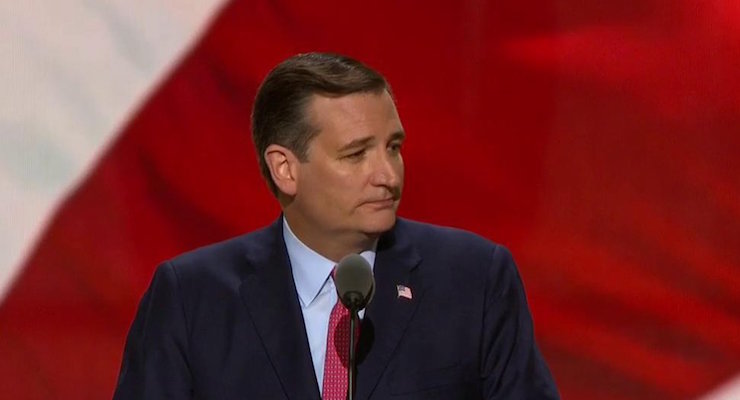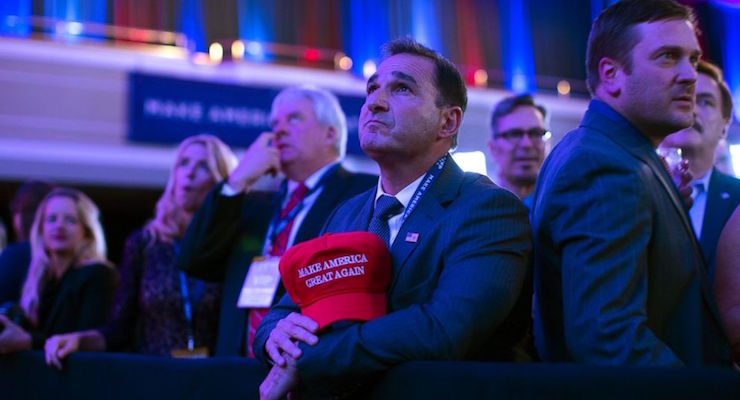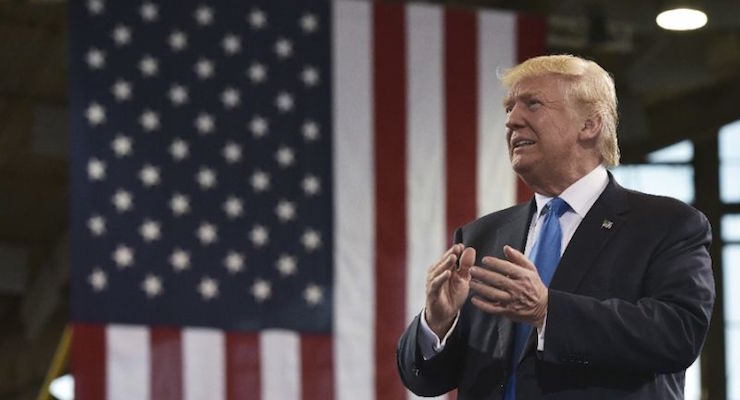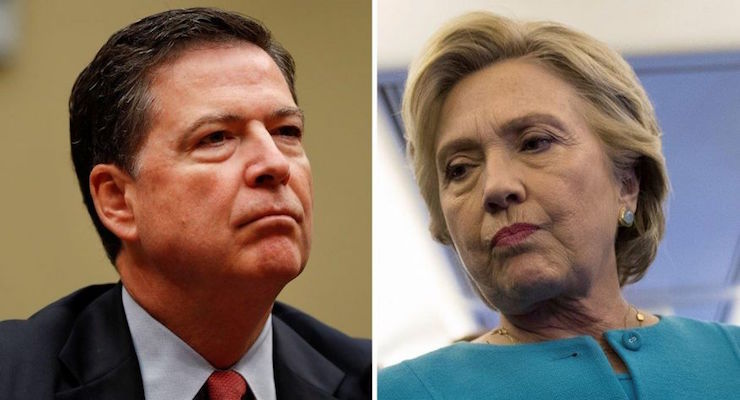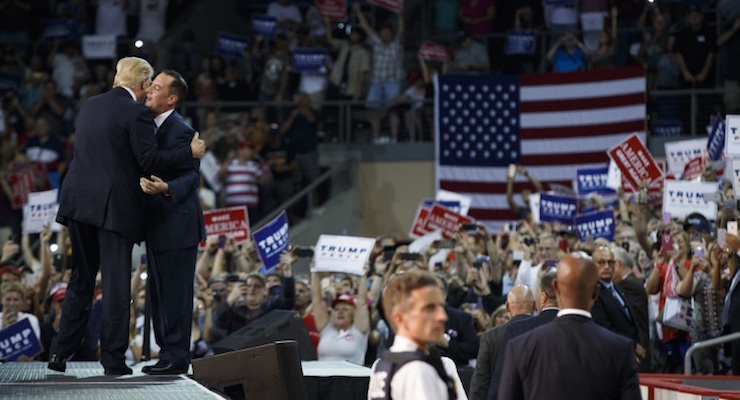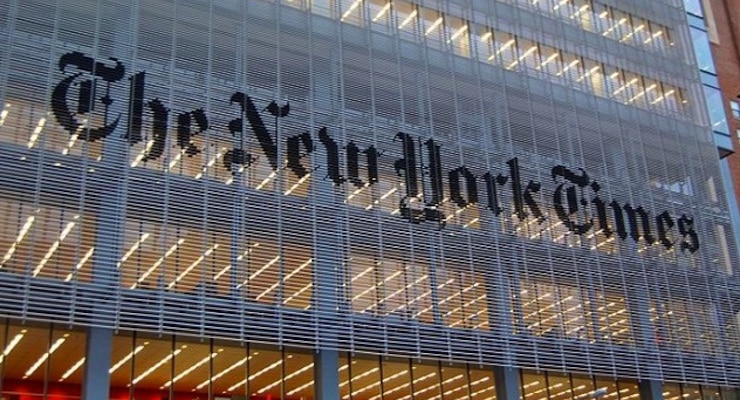A Trump Doctrine — ‘America First’
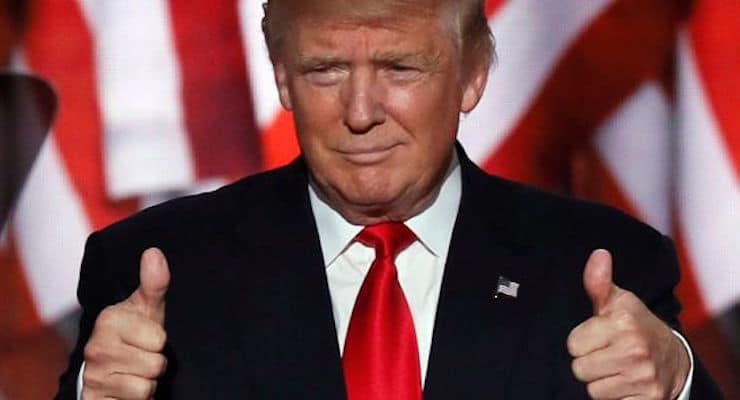
Donald Trump speaks at the Republican National Convention in Cleveland, Ohio at the Quicken Loans Arena.
However Donald Trump came upon the foreign policy views he espoused, they were as crucial to his election as his views on trade and the border.
Yet those views are hemlock to the GOP foreign policy elite and the liberal Democratic interventionists of the Acela Corridor.
Trump promised an “America First” foreign policy rooted in the national interest, not in nostalgia. The neocons insist that every Cold War and post-Cold War commitment be maintained, in perpetuity.
On Sunday’s “60 Minutes,” Trump said: “You know, we’ve been fighting this war for 15 years. … We’ve spent $6 trillion in the Middle East, $6 trillion — we could have rebuilt our country twice. And you look at our roads and our bridges and our tunnels … and our airports are … obsolete.”
Yet the War Party has not had enough of war, not nearly.
They want to confront Vladimir Putin, somewhere, anywhere. They want to send U.S. troops to the eastern Baltic. They want to send weapons to Kiev to fight Russia in Donetsk, Luhansk and Crimea.
They want to establish a no-fly zone and shoot down Syrian and Russian planes that violate it, acts of war Congress never authorized.
They want to trash the Iran nuclear deal, though all 16 U.S. intelligence agencies told us, with high confidence, in 2007 and 2011, Iran did not even have a nuclear weapons program.
Other hardliners want to face down Beijing over its claims to the reefs and rocks of the South China Sea, though our Manila ally is talking of tightening ties to China and kicking us out of Subic Bay.
In none of these places is there a U.S. vital interest so imperiled as to justify the kind of war the War Party would risk.
Trump has the opportunity to be the president who, like Harry Truman, redirected U.S. foreign policy for a generation.
After World War II, we awoke to find our wartime ally, Stalin, had emerged as a greater enemy than Germany or Japan. Stalin’s empire stretched from the Elbe to the Pacific.
In 1949, suddenly, he had the atom bomb, and China, the most populous nation on earth, had fallen to the armies of Mao Zedong.
As our situation was new, Truman acted anew. He adopted a George Kennan policy of containment of the world Communist empire, the Truman Doctrine, and sent an army to prevent South Korea from being overrun.
At the end of the Cold War, however, with the Soviet Empire history and the Soviet Union having disintegrated, George H.W. Bush launched his New World Order. His son, George W., invaded Iraq and preached a global crusade for democracy “to end tyranny in our world.”
A policy born of hubris.
Result: the Mideast disaster Trump described to Lesley Stahl, and constant confrontations with Russia caused by pushing our NATO alliance right up to and inside what had been Putin’s country.
How did we expect Russian patriots to react?
The opportunity is at hand for Trump to reconfigure U.S. foreign policy to the world we now inhabit, and to the vital interests of the United States.
What should Trump say?
“As our Cold War presidents from Truman to Reagan avoided World War III, I intend to avert Cold War II. We do not regard Russia or the Russian people as enemies of the United States, and we will work with President Putin to ease the tensions that have arisen between us.
“For our part, NATO expansion is over, and U.S. forces will not be deployed in any former republic of the Soviet Union.
“While Article 5 of NATO imposes an obligation to regard an attack upon any one of 28 nations as an attack on us all, in our Constitution, Congress, not some treaty dating back to before most Americans were even born, decides whether we go to war.
“The compulsive interventionism of recent decades is history. How nations govern themselves is their own business. While, as JFK said, we prefer democracies and republics to autocrats and dictators, we will base our attitude toward other nations upon their attitude toward us.
“No other nation’s internal affairs are a vital interest of ours.
“Europeans have to be awakened to reality. We are not going to be forever committed to fighting their wars. They are going to have to defend themselves, and that transition begins now.
“In Syria and Iraq, our enemies are al-Qaida and ISIS. We have no intention of bringing down the Assad regime, as that would open the door to Islamic terrorists. We have learned from Iraq and Libya.”
Then Trump should move expeditiously to lay out and fix the broad outlines of his foreign policy, which entails rebuilding our military while beginning the cancellation of war guarantees that have no connection to U.S. vital interests. We cannot continue to bankrupt ourselves to fight other countries’ wars or pay other countries’ bills.
The ideal time for such a declaration, a Trump Doctrine, is when the president-elect presents his secretaries of state and defense.
However Donald Trump came upon the America
